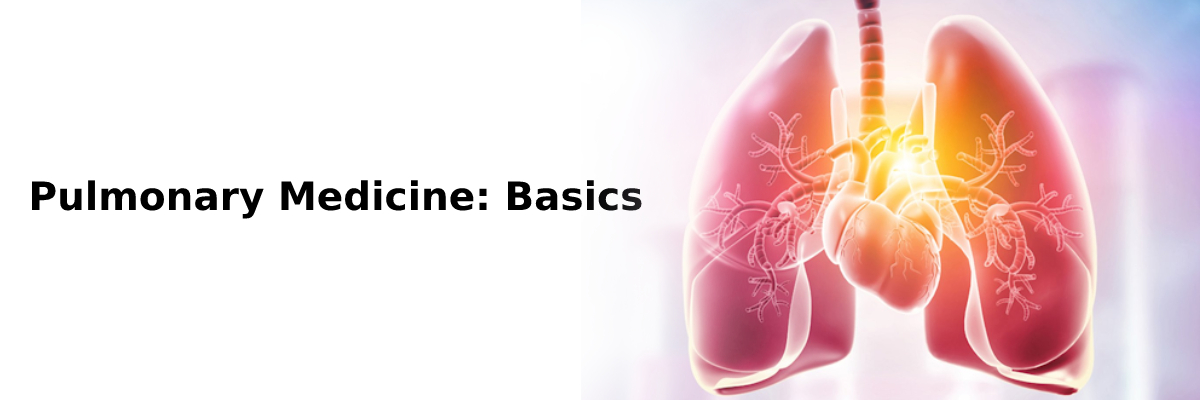
 IJCP Editorial Team
IJCP Editorial Team
Pulmonary Medicine: Basics
Pulmonary medicine is a branch of medicine that deals with diagnosing, treating, and preventing lung and respiratory tract disorders encompassing chronic clinical conditions such as asthma, chronic obstructive pulmonary disease (COPD), pneumonia, and lung cancer. It is a multidisciplinary field involving various diagnostic tools and treatment strategies to manage lung and respiratory diseases and improve the overall quality of life of the patient.
Pulmonologists, also known as chest physicians, are trained specialists who care for people with these conditions. In addition to pulmonologists, other healthcare professionals who may be involved in the care of patients with lung and respiratory disorders include primary care physicians, respiratory therapists, and nurses.
Pulmonary Diseases and Respiratory Disorders
The lungs are vital organs responsible for breathing and providing oxygen to the body. When the lungs are not functioning properly, it can lead to serious health issues resulting in pulmonary diseases. Some of the most common lung and respiratory disorders include:
Asthma is a chronic inflammatory disease of the airways that causes difficulty breathing, wheezing, and coughing. It is caused by a combination of environmental and genetic factors and is characterized by inflammation and narrowing of the airways.
COPD is a group of lung diseases that make breathing hard, including emphysema and chronic bronchitis. It is caused by long-term exposure to irritants such as cigarette smoke and air pollution.
Lung cancer is a type of cancer starting in the lungs that can spread to other parts of the body and is the leading cause of cancer-related deaths worldwide.
The best-suited strategy for preventing lung and respiratory disorders involves reducing exposure to risk factors such as cigarette smoke and air pollution. It also includes getting vaccinated against lung infections such as pneumonia and influenza.
Diagnostic Tools & Treatments Used in Pulmonary Medicine
Pulmonologists use various diagnostic tools to evaluate and diagnose lung and respiratory disorders. These tools include:
Spirometry: A test that measures lung function by measuring the amount of air a person can inhale and exhale.
Chest X-rays: A diagnostic test that uses X-rays to create images of the lungs and chest.
CT Scans: A diagnostic test that uses X-rays and computational power to create detailed images of the lungs and chest.
Bronchoscopy: A procedure that utilizes a flexible tube with a light and camera at the end to examine the inside of the airways.
Biopsy: A procedure in which a tiny tissue sample is taken from the lungs to be examined under a microscope.
After adequate diagnosis, the pulmonologists will work with the patient to develop a treatment plan best suited to the clinical condition of the individual. The treatment options for lung and respiratory disorders include:
Medications: Drugs such as bronchodilators, corticosteroids, and antibiotics are commonly used to treat lung and respiratory disorders.
Oxygen Therapy: in this treatment, oxygen is supplied to the lungs to help improve breathing.
Pulmonary Rehabilitation: This program includes exercise, education, and support to help people with lung and respiratory disorders to improve their breathing symptoms and boost their overall health.
Surgery: In some cases, the doctor may recommend surgical intervention to remove a lung or part of a lung.
Recent Advancements in Pulmonary Medicine
Pulmonary medicine is a rapidly advancing field of internal medicine, with constant development and advancements in novel treatments and diagnostic tools. Some of the recent developments include:
Biologic therapies: these are medications that target specific cells or proteins involved in the inflammation process of lung diseases such as asthma and COPD.
Lung volume reduction surgery: this procedure removes small pieces of damaged lung tissue, allowing the remaining lung to work more efficiently.
Endobronchial valves: it is tiny devices that are inserted into the airways through a bronchoscope to block off diseased areas of the lung and allow healthy regions to expand.
Stem cell therapy: research is ongoing to investigate the potential for using stem cells to repair or replace damaged lung tissue.
The Bottom Line
Pulmonary medicine is one of the crucial and significant fields in medical science that deals with diagnosing, treating, and preventing lung and respiratory tract disorders. It is of utmost importance for people with lung and respiratory disorders to be aware of the warning signs of exacerbations and symptoms of worsening of their condition, which may require emergency medical attention. This may include breathlessness, increased coughing, or changes in the color or amount of mucus produced. If you are experiencing symptoms such as difficulty breathing, wheezing, or chest pain, it is crucial to seek the advice of a pulmonologist or other medical professional.

IJCP Editorial Team
Comprising seasoned professionals and experts from the medical field, the IJCP editorial team is dedicated to delivering timely and accurate content and thriving to provide attention-grabbing information for the readers. What sets them apart are their diverse expertise, spanning academia, research, and clinical practice, and their dedication to upholding the highest standards of quality and integrity. With a wealth of experience and a commitment to excellence, the IJCP editorial team strives to provide valuable perspectives, the latest trends, and in-depth analyses across various medical domains, all in a way that keeps you interested and engaged.










.jpg)










Please login to comment on this article